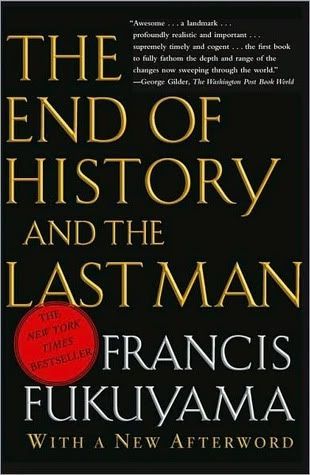Life is beautiful—so much so that there's little need to change it in any significant way. Such is the sentiment that I feel is predominant in the middle class public sphere, to the extent that, apart from a handful of disparate issues on the agenda, there is little prospect for active participation in social transformation.
This endpoint does not mark the fulfilment of the project, however. It seems that while science is still moving irresistibly forward, there is no longer much impetus to expand this project into other domains of human life. We have stopped, it seems, because life is good enough. Material conditions for the large middle classes in wealthier societies are sufficient for the pursuit of individual happiness; so what else do we need?
With the notion of success measured primarily in terms of the accumulation of material goods and perhaps influence, and now that pleasure as a chief mode of happiness is easily attainable, 'structural adjustment' is only used in a macroeconomic and financial sense. The drive for revolution dissipates in the humdrum of daily work and entertainment, drowned out by television and music. It's an uneventful and perhaps even blissful death.
Thus, it is perhaps the case that human agency can only, at least in present times, play but a small part in historical change. Mass action is generally precipitated by external changes and not vice versa. I think this certainly has implications on participation in social organisation, implications that are, unfortunately, less than inspiring.
"We have discovered happiness"—say the last men, and blink thereby.This Nietzschean imagery seems particularly apt if we conceive of modern consumer society as the endpoint of a grand enlightenment project, namely that of turning human beings into masters of their own fates—beginning with mastery over nature through scientific progress (which is still ongoing), and arguably taken to the fullest extent in the Marxist vision of the human mastery over its own labour power.
This endpoint does not mark the fulfilment of the project, however. It seems that while science is still moving irresistibly forward, there is no longer much impetus to expand this project into other domains of human life. We have stopped, it seems, because life is good enough. Material conditions for the large middle classes in wealthier societies are sufficient for the pursuit of individual happiness; so what else do we need?
With the notion of success measured primarily in terms of the accumulation of material goods and perhaps influence, and now that pleasure as a chief mode of happiness is easily attainable, 'structural adjustment' is only used in a macroeconomic and financial sense. The drive for revolution dissipates in the humdrum of daily work and entertainment, drowned out by television and music. It's an uneventful and perhaps even blissful death.
Thus, it is perhaps the case that human agency can only, at least in present times, play but a small part in historical change. Mass action is generally precipitated by external changes and not vice versa. I think this certainly has implications on participation in social organisation, implications that are, unfortunately, less than inspiring.

(0) Comments
Post a Comment